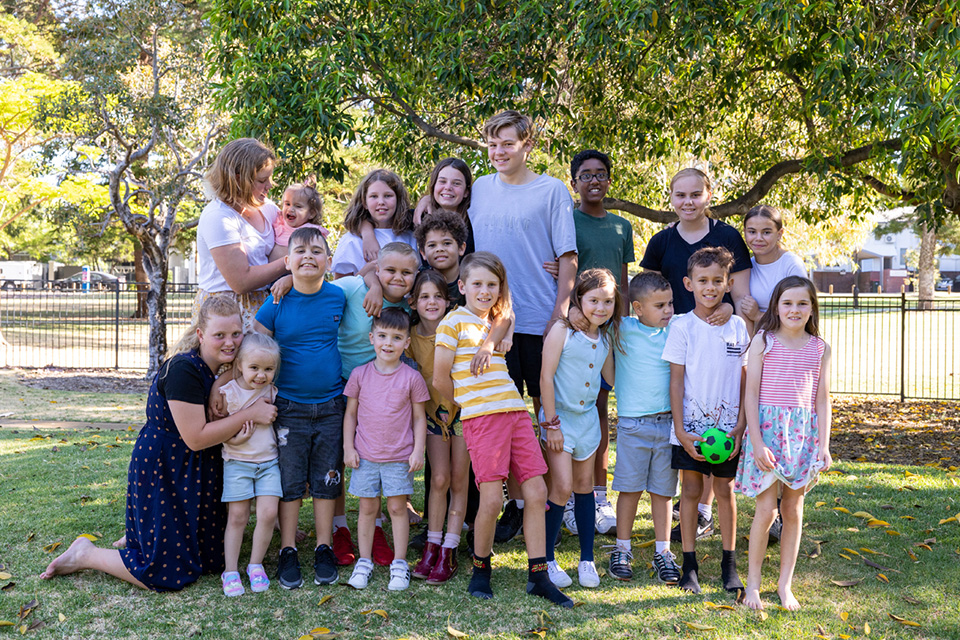Search
Research
Economic Evaluation of The Luminos Project: Early intervention residential centre for young people experiencing thoughts of suicideThe Luminos Project has been co-designed with global experts in youth suicide support, mental health services, and research, alongside input from young people with lived experience, ensuring it meets their needs effectively.
Research
FIFO FamiliesThrough a partnership with PLS, this research will aim to understand the impact of FIFO work arrangements on the mental health and wellbeing of the whole FIFO family.

The Human Development and Community Wellbeing (HDCW) Team focuses on improving outcomes for children, family, and the community.
Research
Acceptability of OP/Na swabbing for SARS-CoV-2: a prospective observational cohort surveillance study in Western Australian schoolsWhen the COVID-19 pandemic was declared, Governments responded with lockdown and isolation measures to combat viral spread, including the closure of many schools. More than a year later, widespread screening for SARS-CoV-2 is critical to allow schools and other institutions to remain open.
Research
Evaluating the effectiveness of the Play Active policy intervention and implementation support in early childhood education and care: a pragmatic cluster randomised trial protocolDaily physical activity is critical during the early years of life for facilitating children's health and development. A large proportion of preschool children do not achieve the recommended 3 h of daily physical activity. Early childhood education and care (ECEC) services are a key setting to intervene to increase physical activity. There is a significant need for ECEC specific physical activity policy, including clearer guidelines on the amount of physical activity children should do during care, and strategies for implementation of these guidelines.
Research
School Readiness of Children Exposed to Family and Domestic ViolenceChildren have a universal right to live free from exposure to family and domestic violence (FDV). Children exposed to FDV can experience long-term effects on their physical and psychological health and their social competencies including social, emotional, and cognitive skills and behaviours that underpin successful social adaptation and academic achievement. The aim of this study was to investigate if children exposed to FDV were more likely to be vulnerable on school readiness measures compared to those children who were not exposed.
Research
Friendly schools’ bullying prevention research: Implications for school counsellorsBullying varies in frequency, intensity, duration and hence severity, and contributes uniquely and directly to mental health problems, with severe and long-lasting consequences. Almost a half of school-age students report being bullied in the past year.
Research
The psychosocial impact of rare diseases among children and adolescents attending mainstream schools in Western AustraliaLiving with a long-term medical condition is associated with heightened risk for mental health and psychosocial difficulties, but further research is required on this risk for children and adolescents with a rare disease in the educational setting. The aim of this study is to describe parents’ perceptions of the psychosocial impact of rare diseases on their school-aged children in Western Australia.
Research
Risk factors for dysfunctional grief and functional impairment for all causes of death during the COVID-19 pandemic: The mediating role of meaningThe COVID-19 pandemic, coupled with significant social changes due to legislative and public health requirements, has changed the way in which people experience grief. We examined whether dysfunctional grief symptoms, disrupted meaning, risk factors, and functional impairment differed between people bereaved from COVID-19 and from other natural or violent causes in this same period.
Research
Fathers’ Self-Compassion and Child Attachment Quality: Testing a Sequential Indirect Effect via Emotion Regulation Difficulties, Loneliness and psychological distress in two paternal samplesSelf-compassion has emerged as a promising treatment target to promote healthy parent–child relationships, though mostly in maternal samples. The mechanisms through which self-compassion may optimise the father-child relationships are not yet well-established.
